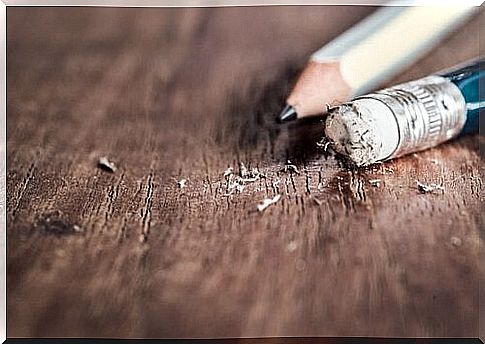To Stumble Is Human, But Don’t Get Attached To Stone …

When Thomas Edison revealed to the whole world the process by which he had created the high resistance incandescent bulb, after much trial and error, he announced: “It is not about a thousand failed attempts, but about an invention in a thousand stages ”.
What Edison’s words teach us is very significant: we can stumble many times, make mistakes, but the most important thing is to always learn.
Between the years 1878 and 1880, Edison worked on more than 300 theories to be able to develop the famous incandescent bulb, which shows his important perseverance, and his will not to give up and to get up again after having failed.
Learning to stumble
Making mistakes is human, but every mistake should teach us to pick ourselves up and learn from what has happened.
There is no point in whining or blaming other people, because what is really effective is thinking and learning the lesson.
From a young age we are taught that the best never make mistakes and we are hidden from us how far they have actually come to get to where they are.
In 2011, a study was published in the journal Psychology and Aging, claiming that as we age, our brains learn better from mistakes than from successes.
In this study, we compared learning outcomes after multiple errors, with error-free learning during memory exercises in adults between the ages of 20 and 70.

Two learning methods were applied. One involved passive learning in which participants were given a category (eg: flower) and a word belonging to the same category (eg: rose).
The other method involved learning based on trial and error: categories were given, but participants had to guess the word related to that category.
The conclusion of this study is that older adults remembered keywords better if they had learned them through trial and error.
Indeed, this result is explained by the fact that older people suffer from a progressive decrease in memory because of their age.
Thus, they are better able to retain information by trying and making mistakes, because they must then reason by association, which requires more work on the part of the brain.
The shadow of perfectionism
Some people are unable to admit that they made mistakes, they are so demanding of themselves and of others that every mistake is seen as failure or defeat.
Perfectionism can be a quality to some extent, especially for meaningful tasks. However, it can also be bad if with every mistake you berate yourself inside.
To avoid perfectionism, we become accepting ourselves and accepting the idea that goals can be flexible and can adapt to cope with change.
This does not mean that we should give up our goals, but that it is necessary to perceive them realistically and to learn that there are several different paths to reach them.

In order to be able to accept the reality around us, it is important to celebrate our successes. If we go from failure to failure, we lose all that we have already accomplished.
Don’t get attached to the stone
Every mistake is a lesson for life. However, it is essential not to chain errors one after the other, that is to say to continually stumble on the same stone, because that means that you do not evolve and that you do not learn from your lesson.
Whenever you are faced with situations similar to other past situations in which you have already made a mistake, it is best to do a self-examination and ask yourself:
- What were the negative consequences of my mistake?
- Is doing the same thing again and taking the risk of making the same mistake worth it?
- Can I act differently?
The answers to these questions will give you a real boost, and this time you will succeed …








